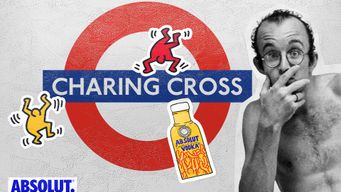Beginning June 26 2024, Carousell and Facebook in Singapore must verify "risky" sellers and advertisers against government records according to the Ministry of Home Affairs (MHA). This is aimed at disrupting scammers who take advantage of online anonymity on e-commerce and messaging platforms to carry out criminal activities.
Non-compliance is considered a criminal offense under the Online Criminal Harms Act (OCHA), which came into effect in June this year.
OCHA targets online content that facilitates scams and harmful cyber activities. The new provisions include two codes of practice: one for online communication services and another for e-commerce services. Both codes took effect from 26 June 2024, requiring compliance by 31 December 2024.
ONLINE COMMUNICATION SERVICES
The online communication code applies to services like Facebook, WhatsApp, Instagram, Telegram, and WeChat, which are identified as high-risk for scams in Singapore. Providers must implement systems to detect and address scams, prevent fake accounts, enforce strong login verification, and submit an annual compliance report.
E-COMMERCE SERVICES
The e-commerce code is aimed at online services in Singapore that are considered high-risk for scams. This code includes similar requirements to the online communication code but includes two additional stipulations: verifying users against government records for ads or sales and ensuring payment protection by confirming delivery before releasing funds.
USER VERIFICATION REQUIREMENT
Facebook Marketplace, Facebook Advertisements, Facebook Pages, and Carousell must comply with this user verification requirement by December 31 of this year.
Initially, Carousell and Facebook Marketplace will only be required to verify sellers deemed "risky," focusing on those identified as potential sources of scams.
MHA will assess the platforms’ effectiveness in reducing scams from July 1 to December 31.
Meta, the parent company of Facebook, is actively testing various verification measures in Singapore and supports the government's efforts to tackle online scams and enhance digital safety.
Carousell plans to implement SingPass verification for users flagged for suspicious behaviour, and will also launch educational initiatives to inform users about risky behaviours such as pre-payment for items before confirming receipt.
Carousell and Facebook Marketplace must provide reports on their adherence to the codes of practice. If these measures prove inadequate, especially if e-commerce scams do not significantly decrease, a new directive may be issued requiring these platforms to verify all sellers by 1 April 2025.
Additionally, Facebook may be required to extend its verification measures to all advertisers by 1 April 2025, if scams related to advertisements do not show a marked decline. For now, user verification for Facebook Pages is deferred to allow a concentrated effort on improving verification for Marketplace and advertisements.
PAYMENT PROTECTION REQUIREMENT
The need for payment protection will be assessed based on how effective user verification reduces e-commerce scams. MHA will also regularly update the list of designated online services in response to current scam trends.
For now, MHA will put the payment protection requirement on hold, allowing online services to focus on user verification, with a review set for 2025.
With these stringent measures, Singapore is setting a new standard in online safety, clearly indicating that scams have no place in the digital marketplace.

/Passle/5ca769f7abdfe80aa08edc04/SearchServiceImages/2025-12-11-21-58-26-997-693b3e82641ff44fb22be187.jpg)
/Passle/5ca769f7abdfe80aa08edc04/SearchServiceImages/2025-12-09-16-09-55-496-693849d32b43241fe162ee63.jpg)
/Passle/5ca769f7abdfe80aa08edc04/SearchServiceImages/2025-12-09-16-00-22-911-693847962b43241fe162e049.jpg)
